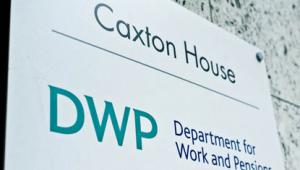Overweight people could lose their entitlement to some benefits if they do not attend exercise classes, according to a report from a London council today.
Conservative-controlled Westminster City Council said the transfer of responsibility for public health to local government from April created an opportunity to link welfare payments to the promotion of good health. It added that localisation of council tax benefit, also from April, was one way for councils to ‘embed financial incentives’.
‘Where an exercise package is prescribed to residents, housing and council tax benefit payments could be varied to reward or incentivise them,’ its report, produced with the Local Government Information Unit, said.
A dose of localism: the role of councils in public health suggests individuals’ take-up of leisure facilities could be tracked through smart cards.
Devolution of public health funding to councils, as part of the government’s reforms to the NHS, comes as town halls face ‘a perfect storm of dramatically reduced resources and significant increases in demand’, the report added.
Efficiency savings alone could not meet this funding challenge, and councils would need to encourage people to live more healthily if they were to maintain the current breadth and quality of service provision. Transfer of public health responsibilities should also therefore be a catalyst to reform services across local government to ‘embed the public health approach’.
As well as possible changes to benefits, the report said that planning and licensing regimes should also be used to improve health and wellbeing. Allowing health services to be established in town centres could draw people to high streets, while easing licensing rules for venues that do not serve alcohol would encourage a more responsible approach to drinking.
The report also warned that the distribution of public health funds proposed by central government would create a ‘challenge’ to the continuing funding of preventative services.
Based on average indicative allocations, it found that the most deprived 20% of councils would receive £8 less per head of population than is currently spent, and the most affluent would get £8 more per head. Pressure on resources could result in preventative services, such as tackling obesity, losing out to demand-led services such as sexual health and alcohol and drugs misuse.
‘This would significantly limit the ability of councils to realise the government’s ambitions for tackling poverty-related ill health,’ the report said.
The report comes after the Department of Health said last month it had not yet confirmed the final funding allocations for individual councils ahead of the transfer of responsibility.




















